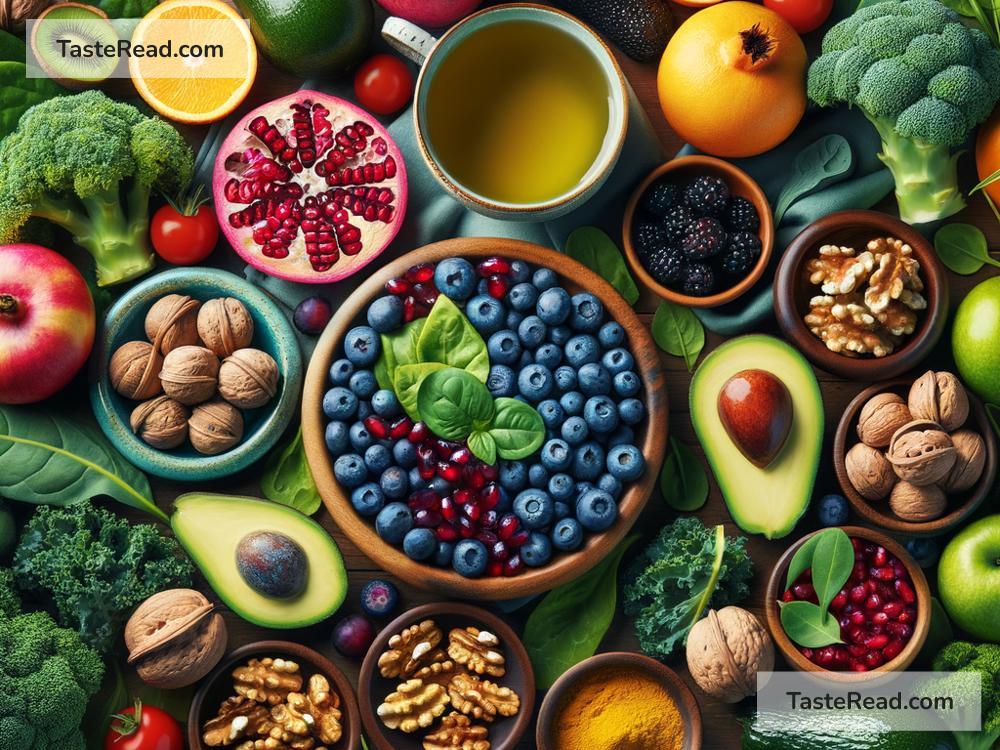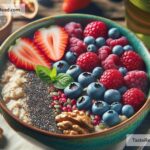Foods for Improving Cellular Senescence: Eat Your Way to Better Aging
As we grow older, our bodies experience changes that we often associate with aging. One important process that affects how we age is called cellular senescence. When cells become “senescent,” they stop dividing and start releasing harmful substances that can damage nearby tissues. These senescent cells contribute to wrinkles, fatigue, and even diseases like cancer and Alzheimer’s. While aging is inevitable, research shows that certain foods can help fight the harmful effects of cellular senescence and promote healthy aging.
Let’s dive into how your diet can make a difference—and which foods help keep your cells younger for longer!
What Is Cellular Senescence?
Before we talk about foods, let’s break down cellular senescence in simple terms. Think of cells in your body like workers on a factory floor. When a worker becomes too tired or damaged, they stop being productive. Instead of retiring quietly, these “retired” workers can create chaos by sending toxic signals that slow down the entire factory. Similarly, senescent cells stop dividing and start releasing inflammatory chemicals, disrupting the healthy functioning of surrounding tissue.
Over time, the buildup of senescent cells contributes to aging and diseases. Thankfully, your body has ways to eliminate these troublesome cells, but these processes can weaken as we age. Certain foods play a role in supporting your body’s natural defenses against senescence, helping to clear out damaged cells and protect healthy ones.
Foods That Combat Cellular Senescence
The good news is that your diet can influence how your body deals with aging cells. Some foods contain nutrients and compounds that reduce inflammation, improve cellular repair, and target senescent cells.
Here are some of the best foods for healthy aging:
1. Blueberries
Blueberries are often called a “superfood,” and for good reason! These little berries are packed with antioxidants, especially anthocyanins, which help neutralize harmful molecules in your cells. Antioxidants combat inflammation and oxidative stress—two factors that contribute to cellular senescence.
Studies show that eating blueberries may improve cognitive function, reduce DNA damage, and even slow down the aging process in cells. Add them to your smoothies or sprinkle them on your oatmeal for a delicious, anti-aging boost.
2. Green Tea
If you’re a tea drinker, you’re in luck. Green tea contains powerful compounds called catechins, which are known for their anti-inflammatory and anti-aging effects. One specific catechin, known as EGCG (epigallocatechin gallate), has been studied for its ability to target senescent cells and promote cellular repair.
Drinking green tea regularly can reduce inflammation, improve skin health, and support your body’s natural defenses against cellular damage. Just swap your soda or sugary beverages with a cup of green tea for a healthy upgrade!
3. Curcumin (Turmeric)
Curcumin is the active compound found in turmeric, a bright yellow spice often used in Indian cooking. This compound has been praised for its ability to fight inflammation, reduce oxidative stress, and target senescent cells.
Curcumin encourages the body to remove damaged cells, making it a powerful tool in slowing down cellular aging. You can incorporate turmeric into soups, stir-fries, or even brew turmeric tea for added benefits. Combining it with black pepper enhances its absorption, so don’t forget to pair the two!
4. Leafy Greens
Leafy greens like spinach, kale, and Swiss chard are rich in vitamins, minerals, and antioxidants that nourish your cells. They contain folate and vitamin C, which support DNA repair and cellular health. These nutrients help prevent damage to your cells and reduce inflammation caused by senescence.
Add greens to your salads, smoothies, or side dishes to consistently provide your body with the tools it needs to fight aging.
5. Nuts and Seeds
Nuts and seeds like walnuts, chia seeds, and sunflower seeds are excellent sources of omega-3 fatty acids, vitamins, and minerals. Omega-3s are especially important for reducing inflammation and promoting cellular repair.
Some studies suggest that omega-3s can slow the accumulation of senescent cells and improve overall cellular function. Snack on a handful of nuts or sprinkle seeds over your yogurt for a healthy, anti-aging treat.
6. Cruciferous Vegetables
Cruciferous vegetables like broccoli, cauliflower, and Brussels sprouts contain compounds called sulforaphane and glucosinolates. These compounds activate pathways in the body that help eliminate harmful toxins and support cellular health.
Sulforaphane, in particular, has been studied for its ability to reduce the impact of senescent cells. Incorporate these veggies into your diet by roasting them, steaming them, or adding them to stir-fries.
7. Olive Oil
Olive oil is not only heart-healthy, but it’s also great for combating cellular senescence. It contains polyphenols, which are antioxidants that reduce inflammation and protect cells from damage. One type of polyphenol called oleocanthal works to clear out senescent cells and improve overall cellular function.
Use olive oil as your go-to cooking oil or drizzle it over salads to enjoy its anti-aging benefits.
Wrapping It Up
While no food can completely stop aging, the right diet can make a big difference in how your cells function as you grow older. Foods rich in antioxidants, anti-inflammatory compounds, and essential nutrients help your body manage cellular senescence effectively.
By incorporating blueberries, green tea, turmeric, leafy greens, nuts, cruciferous vegetables, and olive oil into your meals, you can promote healthy cellular aging and reduce the harmful effects of senescent cells. Aging gracefully doesn’t have to be complicated—it can start with simple, delicious choices on your plate.
So, next time you’re at the grocery store, stock up on these anti-aging powerhouses and give your cells the support they deserve! After all, healthy aging starts from the inside out.


